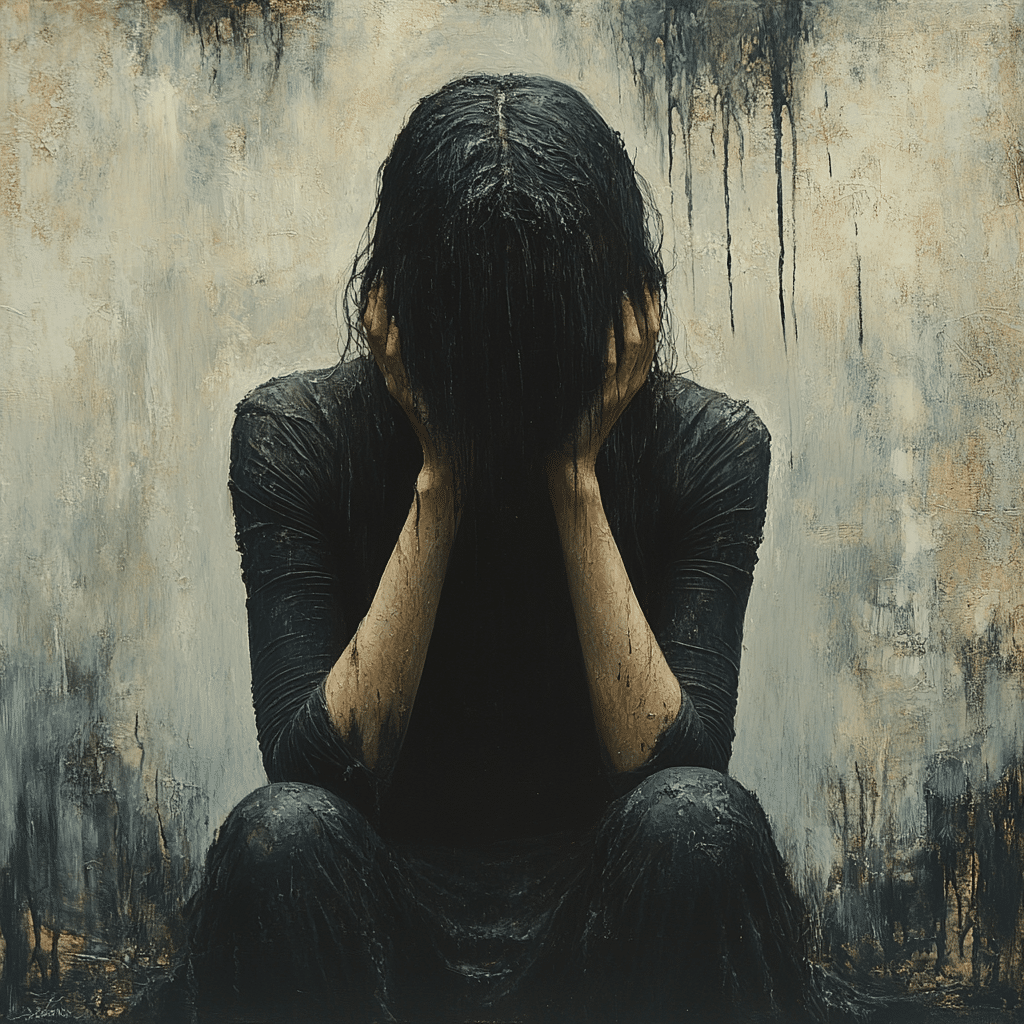Dysthymic disorder, often referred to as dysthymia, is a persistent form of depression that can become a silent struggle for those affected. This mental health issue can last for two years or more in adults and one year in children and adolescents. Unlike major depressive disorder, the symptoms of dysthymia may not be severe but are long-lasting. Individuals grappling with this condition often endure a chronic low mood that creeps into their daily lives, affecting everything from how they interact with family to how they perform at work. Understanding dysthymia helps to shed light on this often-overlooked disorder, revealing the need for compassion and support, particularly for families touched by addiction, such as those involved with Mothers Against Addiction.
The diagnostic criteria for dysthymia typically include persistent feelings of sadness, hopelessness, and low self-esteem. Many people may not even realize they’re experiencing dysthymia because its onset is gradual and its symptoms subtle. Common symptoms include chronic sadness, fatigue, poor self-esteem, difficulty concentrating, and changes in sleep patterns or appetite. All these elements create a detrimental impact, and it’s critical for parents and caregivers of children facing addiction to be aware of the signs of not just substance use but also underlying mood disorders like dysthymic disorder.

Recognizing the Symptoms: The Hidden Signs of Dysthymia
Living with dysthymic disorder often means facing symptoms that may not seem as pronounced compared to major depression, which can make it tricky to identify. Nonetheless, it’s essential to separate feeling “blue” from experiencing clinical dysthymia. Here are the key indicators to watch for:
Recognizing these symptoms is crucial, especially for parents who may be witnessing similar signs in their children. Knowing the indicators can aid in seeking out necessary support or intervention.

The Impact of Dysthymic Disorder on Daily Life
The effects of dysthymic disorder don’t stop at mental health; they ripple through every aspect of daily life. Understanding this impact is essential for those who love and care for individuals battling mental health issues.
Parents who witness their children’s struggle with addiction may be further burdened if they notice these impacts of dysthymia, as they often care deeply about their child’s overall well-being.
Treatment Options for Dysthymic Disorder: Finding the Right Path
Managing dysthymic disorder is often a multifaceted journey, providing various avenues of support. Understanding these treatment options can empower individuals and families alike in their pursuit of healing.
Navigating treatment isn’t always straightforward, but with the right resources and support systems, individuals struggling with dysthymic disorder can find solace.
Overcoming the Stigma: Advocating for Awareness on Dysthymia
The stigma surrounding mental health continues to discourage many from seeking help. Addressing this stigma is imperative to facilitate healthier conversations and promote understanding.
Public figures like Harry Styles championing mental health awareness remind us of the importance of open dialogue. Their courage in sharing personal stories encourages others to seek help. Breaking the stigma surrounding issues like dysthymic disorder must be a collective effort embraced by society, creating a supportive environment for those suffering in silence.
Advocacy organizations, such as Mothers Against Addiction, play a pivotal role in education and awareness, shedding light on the need for compassion and understanding regarding mental health struggles.
Moving Forward: Innovative Solutions for Managing Dysthymia
The future holds promise for managing dysthymic disorder, especially with the emergence of innovative solutions. Accessing mental health support has never been easier due to advancements in technology.
As we tackle dysthymia in various forms, utilizing these innovative solutions can lead to more effective and inclusive care.
Navigating the Journey Ahead: A Collective Responsibility
Addressing dysthymic disorder requires a communal effort. Families and loved ones of those grappling with addiction must understand that they don’t have to face this struggle alone. Advocacy aims to create supportive environments through open dialogues about mental health.
There’s tremendous power in shared experiences and professional guidance. Organizations like Mothers Against provide critical resources that not only educate but also empower families seeking help. Promoting awareness turns anguish into action, creating a society where mental wellness takes precedence.
By coming together as advocates for mental health, we can shine a light on the silent struggles of dysthymic disorder and support the resilience of families navigating the challenges that come with addiction and loss. Together, we can foster a culture of understanding that helps many begin to heal.
Dysthymic Disorder: Understanding Its Silent Struggles
The Basics of Dysthymic Disorder
Dysthymic disorder, also known as persistent depressive disorder, is a chronic form of depression that can linger for years. Unlike major depressive episodes, the symptoms are milder but can overshadow daily life, making it tough for folks to find joy in activities they once loved. Did you know that this condition affects nearly 3% of adults in the U.S.? Imagine being in a constant cloud of gloom, much like a character from the Vampire Hunter d anime battling inner demons. The struggle may not always be visible, yet it’s very real, and understanding it is a vital step toward healing.
Living with Dysthymic Disorder
Living with dysthymic disorder can feel a bit like watching The Real Housewives of Beverly Hills—scenes filled with drama that seem exciting, yet leaving you feeling drained by the end. People enduring this disorder often find it hard to break free from the cycle of negativity and fatigue. They might not understand that this isn’t a weakness but rather a challenge needing attention and care. Fortuitously, more is known about effective treatments today, including therapy and sometimes medication. Even celebrities, like Aimee Ffion edwards, remind us that vulnerability can be part of a powerful journey toward understanding and treating mental health conditions.
Seeking Help and Treatment Options
When it comes to tackling dysthymic disorder, seeking help is pivotal. Many folks may be unaware of various resources available. For instance, financial stress can worsen mental health, but programs like Freedom Debt relief dashboard offer relief options that might ease some burdens. Additionally, exploring lifestyle changes, including mindfulness and community support, can make a significant difference. Interestingly, some individuals have found success using THC-O in moderation—another avenue worth exploring, though it’s essential to approach any new treatment with caution.
Dysthymic disorder may feel like a never-ending journey, but remember that it’s perfectly fine to reach out for support. Whether you’re a parent, a friend, or someone grappling with these feelings, knowing you’re not alone empowers the path to healing. Embrace the journey, seek help, and eventually, brighter days can surely follow!





























 Welcome to Mothers Against Addiction (MAA) AI Support Chat!
Welcome to Mothers Against Addiction (MAA) AI Support Chat!